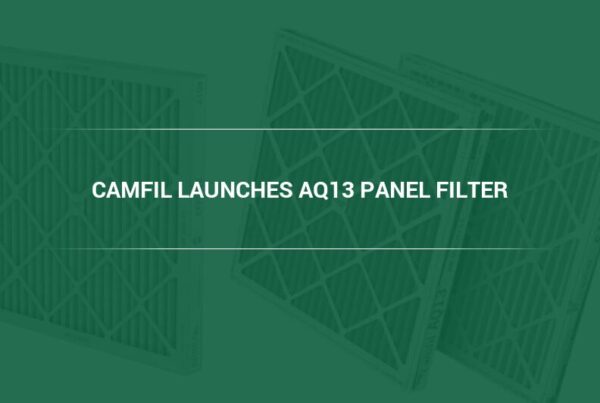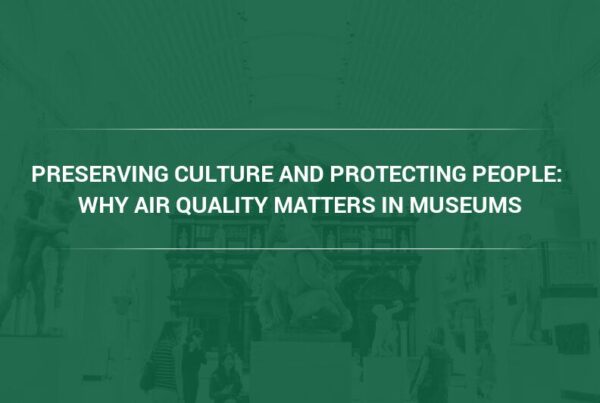Migraines are a form of severe headache, often accompanied by nausea, dizziness, and heightened sensitivities to light, sound, and other sensory input. Recent research has shown that migraines can be triggered and made worse by exposure to certain air pollutants. In this article, air quality experts from Camfil explain how air pollution affects migraine sufferers and what you can do to prevent severe migraine episodes from occurring.
What Causes Migraines?
Migraines are a complex condition that can vary widely in duration, intensity, and the kinds of symptoms experienced from person to person. A migraine episode often includes an intense headache, lasting between four and seventy-two hours, accompanied by a combination of the following symptoms:
- Nausea and vomiting
- Dizziness
- Sensory sensitivity
- An “aura,” or visual problems such as light flashes, blindspots, or hazy vision
- Confusion and difficulty speaking
- Tingling, numbness, or weakness in one side of the face or body
The etiology of migraine headaches is unknown, but migraines are believed to be associated with changes in brain pathways and neurotransmitters that are responsible for regulating pain, such as serotonin. The onset of a migraine headache is triggered by a neurovascular event called cortical spreading depression. This event activates the cranial nerves that regulate cerebral blood flow, causing the onset of a migraine.
Additionally, slight changes in barometric pressure can result in the dilation of cerebral blood vessels and an increase in serotonin release from platelets. As a result, this can lead to vasoconstriction induced by serotonin and the onset of migraine with aura. Subsequently, a decrease in blood serotonin levels causes rapid expansion of cerebral blood vessels, resulting in the onset of a migraine.
Triggers for migraines vary between individuals, but may include:
- Certain strong odors
- Bright lights
- Sudden weather changes
- Sleep changes
- Excessive stress
- Alcohol consumption
- Excessive caffeine
Recent evidence also points to certain air pollutants both as triggers for migraine onset and as factors responsible for making migraine episodes worse.
Can Air Pollution Cause a Migraine?
There is increasing evidence that links air pollution exposure to migraines. Certain common air pollutants, such as nitrogen dioxide, sulfur dioxide, and particulate matter, as well as airborne lead particles, have been found to be linked to the intensity, frequency, and duration of migraine episodes.
Of the pollutants that researchers have linked to migraines, nitrogen dioxide and particulate matter have the largest and most statistically significant (i.e. least likely to be attributable to random chance) effects. Scientists posit that because PM2.5 activates the sympathetic nervous system, which regulates the heart, pollution exposure can trigger alterations in blood flow to the brain that lead to migraines. Particulate matter can be removed from the air with a tested and certified actual HEPA filter or premium (MERV-A rated) mechanical filter.
Exposure to ozone and carbon monoxide, which are both common products of traffic pollution, is known to be migraine-inducing, particularly in cold climates. Research has also shown a correlation between increased relative humidity and a higher risk of migraine headache onset, specifically in warm climates.
Overall, the presence of air pollution in both ambient and indoor air is a significant trigger for migraine headaches, especially in combination with rapidly shifting weather conditions.
How An Air Purifier Can Reduce Migraine Frequency, Intensity, and Duration
In addition to harmful pollutants and poor air quality conditions leading to migraines, as explained above, the presence of strong smells in the air is a known trigger for migraine episodes for many migraine sufferers.
A 2023 study published in the peer-reviewed journal Scientific Reports showed that the most common odor associated with migraine onset was perfume, with 55.4% of study participants citing it as a trigger. Other smells likely to trigger migraines were tobacco (47.5%), fabric softener (32.7%), body odor (32.7%), garbage (24.8%), hairdressing products (22.8%), cars (22.8%), and sweat (19.8%). Some of these everyday smells are often unavoidable in indoor spaces such as homes, schools, and offices, and can cause debilitating symptoms for people who experience migraines. Activated carbon can remove many odors from the air in indoor spaces, thus removing some of the potential for migraine onset to occur.
By using an air purifier that uses both an activated carbon filter and a factory-tested and certified actual HEPA filter, people who struggle with chronic and acute migraine episodes can combat odors that trigger migraine headaches as well as harmful air pollutants that make migraines worse.
Read more about air purifiers for combating migraines here.
About Camfil Clean Air Solutions
For more than half a century, Camfil has been helping people breathe cleaner air. As a leading manufacturer of premium clean air solutions, we provide commercial and industrial systems for air filtration and air pollution control that improve worker and equipment productivity, minimize energy use, and benefit human health and the environment. We firmly believe that the best solutions for our customers are the best solutions for our planet, too. That’s why every step of the way – from design to delivery and across the product life cycle – we consider the impact of what we do on people and on the world around us. Through a fresh approach to problem-solving, innovative design, precise process control, and a strong customer focus we aim to conserve more, use less and find better ways – so we can all breathe easier.
The Camfil Group is headquartered in Stockholm, Sweden, and has 30 manufacturing sites, six R&D centers, local sales offices in 35+ countries, and about 5,600 employees and growing. We proudly serve and support customers in a wide variety of industries and in communities across the world. To discover how Camfil USA can help you to protect people, processes and the environment, visit us at www.camfil.us/
##
Media Contact:
Lynne Laake
Camfil USA Air Filters
T: 888.599.6620
E: Lynne.Laake@camfil.com
F: Friend Camfil USA on Facebook
T: Follow Camfil USA on Twitter
Y: Watch Camfil Videos on YouTube
L: Follow our LinkedIn Page
Sources:
https://www.ncbi.nlm.nih.gov/pubmed/31446321
https://www.ncbi.nlm.nih.gov/pmc/articles/PMC2677474/#r34-6362



